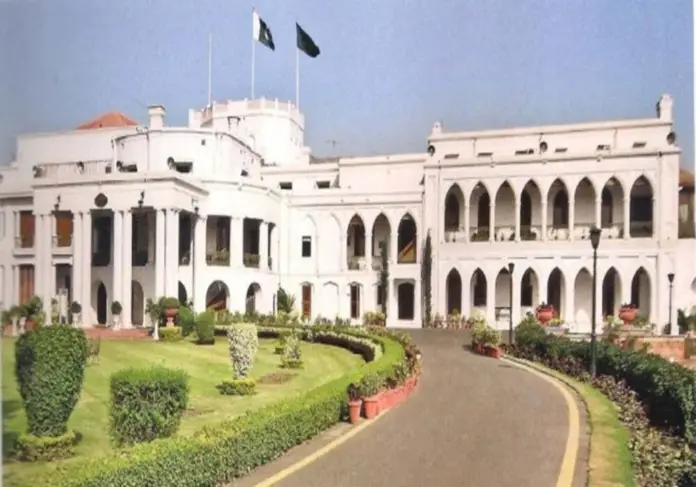For good governance, a strong, stable, authoritative, and reliable government is indispensable, and for a strong, stable government, a balance between political and administrative institutions is very important. It cannot be that the political institution is strong and stable but the administrative institutions suffer from uncertainty and distrust. A balance is something that can help solve or deliver the problems of the people, whatever the system. The importance of administrative institutions has always been twofold. The role of the bridge between the rulers and the people is played by the administration, i.e., the bureaucracy. A political government comes with a mandate of five years, and it takes a lot of effort to provide facilities to the people during this period and enter the election campaign of the next election with full stature. The bureaucrats come with a mandate of at least 25 years, so what is the reason that the administrative officers are unable to fulfil their duties? Even at this time, if you look at the government structure in Punjab, it is clear that the political government is appropriate, but the administrative team is unwilling and ignorant, rather disabled and paralyzed. The only reason is that the administrative officer does not know whether he will be at the post tomorrow or not. The double-edged sword of fear of transfer hangs over their heads at all times. No one can perform with a sword hanging over their heads. Could you?
The political and administrative boundaries and authorities have been determined by the Supreme Court in the decision of the Anita Tarab case, and if seen, it was an excellent attempt to establish a balance between political and administrative authorities. Bureaucratic sources suspect the appointment and transfer of government employees. No government is following the norms laid down by the Supreme Court to protect their tenure and protect the bureaucracy from politics. Sources in the Establishment Division confirmed that in hardly any cases are reasons given in writing for premature transfers. According to the Supreme Court, the term of office cannot be changed as long as there is a solid reason and these reasons are stated in writing. In its judgement, Supreme Court protected the tenure of government employees and ordered that the tenure of government employees cannot be changed unless there is a valid reason. As long as the reasons are stated in writing, the Supreme Court has held that these reasons are judicially reviewable, although governments generally insist that it is the prerogative of the government to remove any officer from his post at any time. Although the Supreme Court said in the Anita Tarab case that appointments, dismissals, and the matter of development should be in accordance with the law and the rules laid down in it should be taken care of, and in cases where there is no law and privilege is used, then the privilege should be used in a transparent, logical, and orderly manner, and above all, this privilege should be used in the public interest.
Frequent transfers and appointments adversely affect the efficiency and effectiveness of civil servants, and as a result, governance deteriorates with each passing day. Yes, in the report of FIA regarding the wheat crisis, it has been mentioned that the changes made several times in the food department are the main reason for the crisis. In the Anita Tarab case, the Supreme Court laid down the following rules to protect public servants from politics:
- The process of appointment, removal and promotion should be in accordance with the law and the rules. To be used appropriately and keep the public interest in mind.
- When a term of office has been fixed by law for any post and the rules have been laid down there, the term shall be respected and it shall be changed only for good reasons. Those reasons must be stated in writing and can be reviewed by the courts.
- The first duty and loyalty of all public servants are to the law and the constitution, they do not have to obey illegal orders from superiors, nor do they have to obey orders that are inconsistent with established procedures, rules and the constitution. In such a case, the government servants should put their opinion in writing and, if necessary, oppose such orders.
- Officers shall be placed on OSD only for valid reasons. The reasons shall be in writing, which may be reviewed by the courts. And even if an officer is placed on OSD, the duration thereof shall be reduced. It shall be of less duration than that and if a disciplinary inquiry is in progress against him, it shall be completed as soon as possible.
The Supreme Court had said that while it was aware that the above matters are related to the decision-making and administrative machinery of the state, we have pointed out the need to ensure tenure, appointment, promotion, and transfer. Decisions related to such should be in accordance with the principles and not according to such discretionary powers which cannot be interfered with or revised. A copy of the decision on the direction of the Supreme Court was sent to the Federal Secretary Establishment, Provincial Chief Secretaries, the Commissioner Islamabad Capital, the Secretaries of the territory and all federal and provincial departments.
After this detailed and logical decision, the Supreme Court needed to keep an eye on the implementation so that there was some remedy for the excesses of bureaucracy. Nevertheless, this did not happen due to the way in which this order of the Supreme Court is being continuously violated. The Chief Secretary and Inspector General Police level officers do not know how long they are holding this position and when they will be ousted. The more worrying situation is that the federal government is not willing to cooperate with Punjab anymore and, in this time of difficulty, it does not accept anything from the province, creating more difficulties when the chief secretary has not been appointed. It is a question mark on the governance system of the country and making history that a provincial chief secretary is on leave, again and again, requesting FG that he is not willing to stay in this post and the federal government is not even listing to appoint another chief secretary on the request of the provincial government that is running the province CS office with a temporary arrangement. The Chairman of the P&D Board is looking after this post with his own very busy and important job.
Although acting Chief Secretary Abdullah Khan Sumbal and Additional Chief Secretary Capt. Asad Ullah Khan is doing an excellent job, on the other hand, so many important posts are vacant and many good officers are in waiting for posting. The Provincial Government is not willing to appoint them because of its political interests. Shehryar Sultan, Ali Murtaza, Ahmed Raza Sarwar, Silwat Saeed, Ali Sarfraz Hussain and many others are among them. The judiciary and the army are two institutions in the country where such a situation has never arisen. Judicial officers do their work, and the judicial bureaucracy is their own. After completing his period of deployment with satisfaction, honour, and dignity, he leaves happily. In the army, the laws are followed to a perfect level due to the discipline in these two state institutions, and they are run like well-oiled machines. Being done automatically, like a fixed mechanism. The result of this uncertainty in the civil administration is that now a large number of officers, without distinguishing between good and bad, pledge their allegiance to the “righteous” hands of every new government to complete their tenure with honour and dignity. Thus, the bureaucracy is deprived of the environment of working as a team in an organized manner with regular planning but is performing its duties as a “time-pass” in an atmosphere of uncertainty and mistrust.







